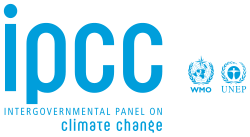| Intergovernmental Panel on Climate Change |
|---|
 |
The IPCC supplementary report of 1992 was published to contribute to the debate on the United Nations Framework Convention on Climate Change at the 1992 Earth Summit, held in Rio de Janeiro. [1]
Contents
The report updated and revised some of the data contained in the IPCC First Assessment Report, and included six new climate change scenarios, including an update of the 1990 reference scenario. [2]
The major conclusion was that research since 1990 did "not affect our fundamental understanding of the science of the greenhouse effect and either confirm or do not justify alteration of the major conclusions of the first IPCC scientific assessment". It noted that transient (time-dependent) simulations, which had been very preliminary in the FAR, were now improved, but did not include aerosol or ozone changes.